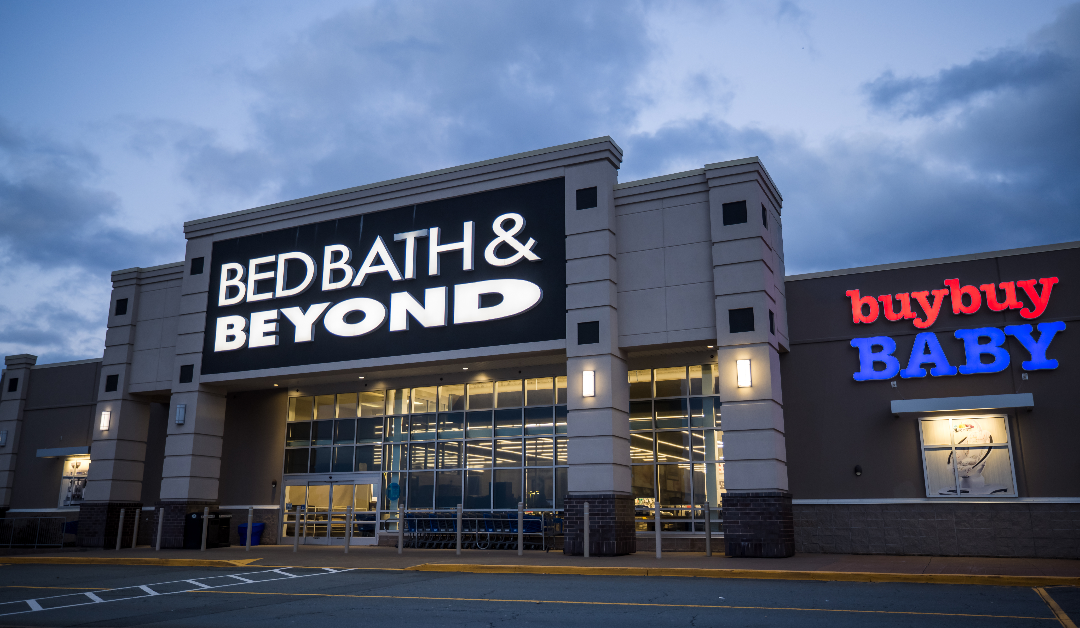Whenever I hear about a company going bust, my thoughts race to find the reason why. Companies do not just go belly up. One day my son said to me, Poppy, standing in the middle of the street with oncoming traffic is not an accident. That’s kind of how I feel about Bed, Bath, & Beyond (BBBY). My first notion was correct, I’ll get to that later. But after performing some quick research, my conclusion is Bed, Bath, & Beyond enjoyed playing the popular 80s video game Frogger.
Nepotism and pump and dump.
All parental business owners dream of the day when their children get the entrepreneur bug and decide to open their own business, or even better, step into their shoes. On surface, there is nothing wrong with desiring to purchase a business brought to you by your children. There is a problem if the relative has an undue influence in the transaction. Simply put, undue influence is the act of using extreme persuasion to cause another person to avoid using his or her best judgement or free will to cause an inequitable result. Your children bringing an offer to you can create such an atmosphere.
It was reported that BBBY activist investors noted “several instances” of perceived nepotism, including the purchase of Buy, Buy, Baby from Leonard Feinstein’s, two children, a co-founder of BBBY. Additionally, there was the purchase of Chef Central from co-founder’s Warren Eisenberg’s son. Numerous times in business I have witnessed firsthand where founders have a soft spot and make poor decisions with relatives. Remember, first and foremost, especially if you are a publicly traded company, your responsibility is to shareholders. Every business decision must be examined through that lens.
There’s been a lot of pump and dump during and since COVID. Some of it has been in the form stock buyback, to artificially inflate market valuations. We applaud Michael Dell for taking Dell Computers private. Once of the best business moves, I’ve seen in a long time. BBBY should have done the same. Yes, it’s easy to be a Monday morning quarterback. But when you consider the class action complaint filed against BBBY, it begs the question why didn’t they.
The complaint’s Substantive Allegations presented are, “…materially misleading statements and omissions made to investors regarding BBBY’s strategic company plans, financial conditions…” I will be the first to tell you, stuff happens. But BBBY’s chief financial officer committing suicide did not help investors’ confidence.
What makes sense?
It’s quite easy to conclude it was the purchasing of Buy, Buy, Baby, Chef Central, and presenting, “materially misleading statements” that lead to the demise of BBBY. Yes, these items do play a contributing part. But it is far simpler than that. BBBY did not know when to pivot and increase its online presence via an app, Amazons, and influencers, while simultaneously decreasing its brick-and-mortar footprint.
During our research we learned BBBY was still using coupon mailers, promotion discounts tactics at late as 2019. Really! Our article, Growing online during decline briefly emphasis the important of being mobile market ready. Coupons are still an admirable way to drive business, locally. But it is far more imperative that marketer and business operators know the personas of the customers and the data metrics that support the nuances of how their customers think and develop sales program around the data.
Who is your customer? BBBY’s competitors are Wayfair and Overstock. All I hear is price war, not customer experience. Competing on price is not in of itself a firm competitive advantage. Many boardrooms in have the old boys’ network. No, not old white men, though that may be true. Boardrooms are filled with stagnant thinkers not having imaginations to consider how underutilized the internet is. Lazy! Use the tools like cloud computing, Chat-GPT, Facebook analytics to mine how to get a competitive advantage. Keep this in mind, with every new technology advancement, you must consider how it will impact your business.

